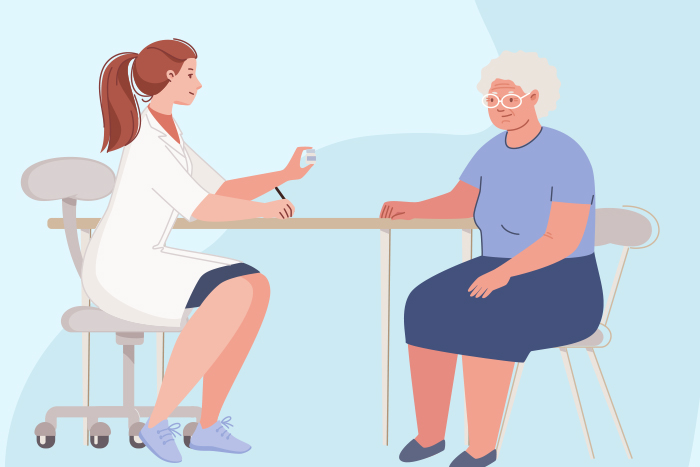What comes next after a cancer diagnosis?
You may feel scared, confused, or unsure of what comes next after you or a loved one gets diagnosed with cancer. That’s okay. These feelings are common, and you're not alone. While every person’s journey with cancer is different, understanding what to expect can help you feel more in control and less anxious.
This guide gently walks you through the early steps after a cancer diagnosis—what usually happens, how to prepare for treatment, and where to find support along the way.
Take Time to Process the News
Right after a cancer diagnosis, it’s normal to feel a mix of emotions: shock, sadness, anger, or fear. You might find it hard to focus or remember what the doctor said. Don’t worry—this is a big moment, and it takes time to sink in.
Take a few deep breaths. Give yourself permission to feel whatever you’re feeling. Talk with a trusted friend or family member. Writing down your thoughts in a notebook or journal may also help you sort through your emotions.
Learn About Your Diagnosis
Once you’ve had a moment to process the news, the next step is learning more about your specific type of cancer. Your doctor will likely explain:
What type of cancer you have
Where it is in your body
Whether it has spread (the stage)
What treatments may be helpful
Ask your doctor to explain things in simple terms. You can bring a family member or friend to take notes or help ask questions. Don’t be afraid to ask for information to be repeated or written down. It’s important that you understand what’s happening in your body and what to expect.
More Tests May Be Needed
Your doctor might order more tests to get a clearer picture of the cancer. These can include:
Blood tests to look for abnormal cells or tumor markers
Imaging tests like CT scans or MRIs
A biopsy, which is when a small piece of tissue is checked under a microscope
These tests help your care team plan the best treatment for you.
Understanding Your Treatment Options
Cancer treatment depends on the type of cancer and how far it has spread. Some common treatments include:
Surgery to remove the cancer
Radiation to kill cancer cells in a targeted area
Chemotherapy to attack cancer cells throughout the body
Immunotherapy to help your body fight the cancer
Hormone therapy for cancers like breast or prostate cancer
Your doctor will talk with you about which treatments are recommended and what side effects to expect. You might also want a second opinion, which is perfectly okay. Many people feel more confident in their care after hearing another expert’s view.
Build a Support Team
You don’t have to go through this alone. Your support team might include:
Family and friends, who can offer emotional support and help with daily tasks
A social worker or counselor, who can help you find resources and talk through feelings
Support groups, where you can connect with others going through similar experiences
A patient navigator, who can help guide you through appointments, paperwork, and insurance
Accepting help can ease the load and give you more energy to focus on your health.
Take Care of Your Emotional Health
Feeling anxious or down after a cancer diagnosis is very common, especially for older adults. Your usual routine may feel disrupted, and the unknowns ahead can cause worry.
Here are a few things that may help:
Stay connected to people you trust
Try gentle movement, like walking or stretching, if your doctor says it’s okay
Do calming activities like listening to music, gardening, or reading
Speak to a mental health professional if you’re feeling depressed or overwhelmed
You are allowed to ask for help—for your body and your mind.
Keep a List of Questions
As you go through this journey, questions will come up. Keep a small notebook or note app where you can jot them down. Some good questions to ask include:
What are my treatment options?
What side effects should I expect?
Who should I contact if I have questions between appointments?
What happens next?
Consider bringing a friend or loved one to your doctor visits to help you remember what the doctor said during the visit. Being prepared can make you feel more confident and in control.
A Note on Hope
Cancer treatment has come a long way. Many people live for years—and even decades—after a cancer diagnosis. While not all cancers can be cured, many can be managed like a long-term illness.
Your care team is there to help you every step of the way. Don’t be afraid to speak up, ask for support, and take things one step at a time.
A cancer diagnosis is a big moment, but you don’t have to face it by yourself. With the right care, support, and information, you can move forward with strength and hope.
Sources:
National Cancer Institute: Adjusting to Cancer
Mayo Clinic: Cancer
Mayo Clinic: Cancer diagnosis: 11 tips for coping

